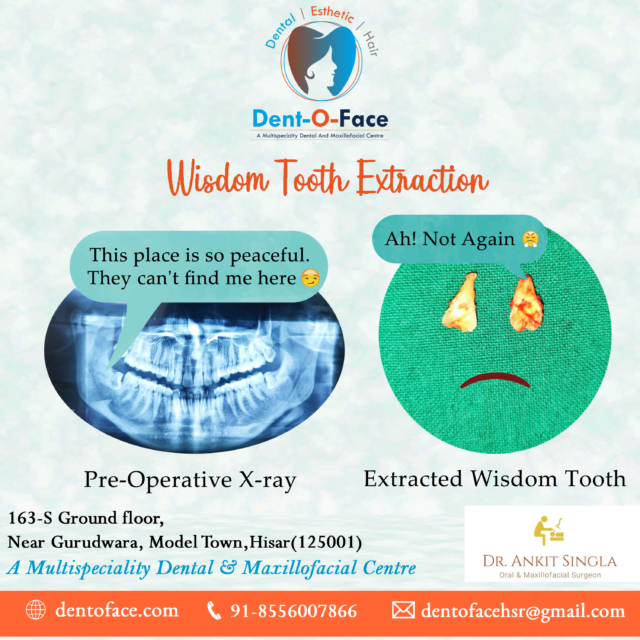Common Dental and Facial Conditions
Dental and facial surgery can have a impact on an individual’s oral health and overall well-being. In this article, we will delve into several common conditions that affect the teeth, mouth, and face, including impacted wisdom teeth, cleft lip and palate, temporomandibular joint (TMJ) disorders, and oral cancer. By providing a comprehensive understanding of the causes, symptoms, and available treatment options for these conditions, we aim to empower readers with the knowledge to make informed decisions about their oral and facial health.
Impacted Wisdom Teeth
Causes
Impacted wisdom teeth, (Dental and facial surgery) , also known as third molars, occur when these teeth fail to fully emerge from the gums. This can happen due to various reasons, such as insufficient space in the jaw, alignment issues, or the angle at which the teeth grow.
Symptoms
Dental and facial surgery, Symptoms of impacted wisdom teeth may include pain, swelling, redness, and difficulty in opening the mouth fully. In some cases, improper growth of these teeth can lead to infection, tooth decay, and damage to neighboring teeth.
Treatment Options
Treatment for impacted wisdom teeth may involve a surgical extraction. The procedure is typically performed by an (Dental and facial surgery) oral surgeon who will remove the impacted teeth under local or general anesthesia. If diagnosed early, extraction can prevent future complications and promote good oral health.


Cleft Lip and Palate (Dental and facial surgery)
Causes
Cleft lip and palate are birth defects that occur when the tissues forming the upper lip and the roof of the mouth do not fully fuse during fetal development. Dental and facial surgery, The exact cause is not always known but factors such as genetic predisposition and environmental influences can contribute to this condition.
Symptoms
The symptoms of cleft lip and palate vary depending on the condition. In addition to visible facial deformities, individuals with cleft lip and palate may experience difficulties with feeding, speech development, and dental complications.
Treatment Options
The treatment for cleft lip and palate typically involves a series of Dental and facial surgery to repair the affected areas. These procedures are often performed during infancy or early childhood to facilitate normal growth and development. Additional interventions, such as speech therapy and orthodontic treatment, may be necessary to address speech and dental concerns.
Temporomandibular Joint (TMJ) Disorders
Causes
Temporomandibular joint disorders, commonly referred to as TMJ disorders, arise from problems with the jaw joint and the surrounding muscles. Dental and facial surgery, these disorders can be caused by various factors, including jaw misalignment, bruxism (teeth grinding), arthritis, or trauma to the jaw joint.
Symptoms
The symptoms of TMJ disorders can range from mild to severe and may include jaw pain, clicking or popping sounds when opening or closing the mouth, headaches, earaches, and difficulty in fully opening or closing the mouth.
Treatment Options
(Dental and facial surgery), Treatment for TMJ disorders can encompass various approaches, depending on the specific case. Conservative measures, such as lifestyle changes, jaw exercises, and pain management techniques, are often recommended initially. Dental and facial surgery:- In more severe cases, dental appliances, orthodontics to correct bite alignment, or even surgery may be necessary to alleviate symptoms and improve jaw function.
Oral Cancer
Causes
Oral cancer refers to cancer that develops in any part of the mouth, including the lips, tongue, cheeks, and throat. Multiple factors can contribute to the development of oral cancer, including tobacco use, excessive alcohol consumption, HPV (human papillomavirus) infection, and prolonged sun exposure.
Symptoms
The symptoms of oral cancer may include persistent mouth sores, red or white patches in the mouth, difficulty in chewing or swallowing, a persistent sore throat, unexplained bleeding, or numbness in the mouth or face.
Treatment Options (Dental and facial surgery)
The treatment of oral cancer depends on various factors, including the stage of the cancer and the individual’s overall health.
By gaining knowledge about common dental and facial conditions, individuals can become more proactive about their oral health. Regular dental check-ups and early intervention can help prevent or manage these conditions effectively. Taking steps to maintain good oral hygiene and seeking professional guidance is vital to ensure a healthy and confident smile for a lifetime.
What is dental and facial surgery?
What are the common reasons for dental and facial surgery?
Is dental and facial surgery painful?
How long is the recovery period after dental and facial surgery?
Are there risks involved in dental and facial surgery?
Can dental and facial surgery improve my appearance?
What is the difference between oral surgery and maxillofacial surgery?
How do I choose a qualified dental and facial surgeon?
What can I do to prepare for dental and facial surgery?
Are you searching for the best orthodontists , Visit Dent-O-Face
let know our doctor or go to

One comment
Health Stay
February 29, 2024 at 11:12 am
Very well presented. Every quote was awesome and thanks for sharing the content. Keep sharing and keep motivating others.